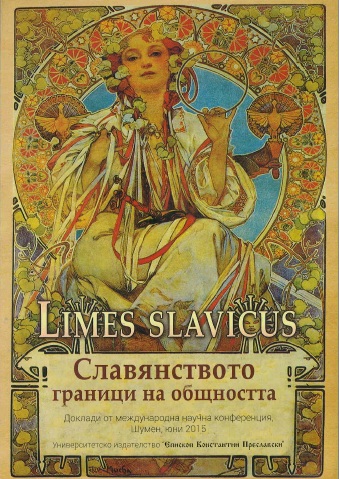Particípiá a deverbatívne adjektíva ako súčasť viacslovných pomenovaní v slovenských nárečiach
Participles and deverbative adjectives as components of multi-word naming units in Slovak dialects
Author(s): Veronika PerovskáSubject(s): Language studies, Language and Literature Studies, Western Slavic Languages
Published by: Шуменски университет »Епископ Константин Преславски«
Keywords: multi-word naming unit; participle; adjectivized participle; deverbative adjective; Slovak dialects
Summary/Abstract: The paper deals with Slovak dialectal multi-word naming units (MWNUs) containing a participle or a deverbative adjective. It is based on the thesis of multiple functions and multiple meanings of the sufixes, which are constitutive elements of deverbative components of analysed MWNUs. The material basis consists of660 units excerpted from Slovmk slovenskych nareci (l.vol. 1994, 2. vol. 2006). The aim of the paper was to look at the material from three viewpoints - grammatical, semantic and dialectal (areal distribution and interdialectal variability). There are threeposiblilities of grammatical, morphological existence of deverbative component in multi-word naming units were identified: a) participle, b) adjectivized participle, c) deverbative adjective. These three groups are constitued on the basis of continual adjectivization accompanied by formal and semantic changes (e. g. a change from perfective to imperfective form or semantic transposition). Autonomous group is formed by deverbative adjectives, which were never participles, because they were derivated from an infinitive stem (e. g. kova- ci), not from present stem (kovaju-ci). Semantic analysis confirmed the initial thesis of MWNUs by literal paraphrasing. It revealed their actual meanings, but also theis secondary meanings (e. g. the actual past passive resultative meaning of sufix -ny in MWNU uprazenuo maslo but also recipient meaning in MWNU roskazane Cizmi). From the dialectal point of view, it was confirmed, that neutral sufixes are -ny and -ty and the sufix -ly is typical only for western dialects. Formal variability of MWNUs among dialects consist mainly in differences in aspectual forms, differences in sufixes or differences in the motivation of components. Synonymic-heteronymic relations and variants have their origin in these differences.
Journal: Limes Slavicus
- Issue Year: 2016
- Issue No: 1
- Page Range: 71-81
- Page Count: 11
- Language: Slovak

